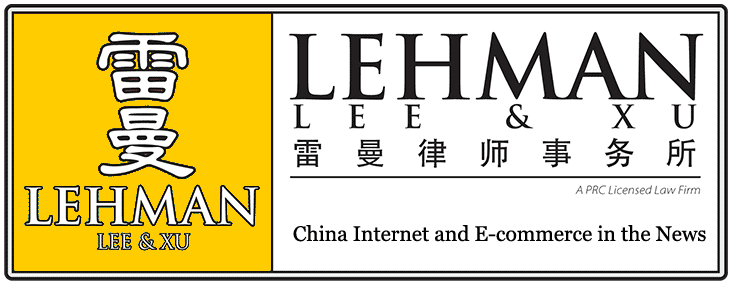American TV shows offered by Chinese Internet companies will likely face tougher scrutiny next year after China’s media watchdog announced plans Friday to step up enforcement of licensing regulations and emphasized the need for wholesome content.
China’s State Administration of Press, Publication, Radio, Film and Television said foreign TV shows failing to obtain a license will be taken offline starting April 1, 2015.
“Qualified Internet video content providers are encouraged to introduce healthy and well-produced foreign TV shows that promote positive values such as being truthful, kind and delightful,” the agency said in a statement on its website (link in Chinese).
Hit American TV shows such as “The Big Bang Theory” and “Breaking Bad” have become increasingly popular among China’s well educated and English-speaking younger generation in recent years, thanks to licensed content on Chinese portals including Sohu, Youku and Tencent.
Chinese authorities have been more flexible when it comes to video content on the Internet compared with broadcast television, allowing TV shows such as “Masters of Sex” and “The Walking Dead” to be streamed online. But earlier this year, two episodes of NBC’s hit drama "Blacklist" that portrayed authorities in China as villains were deleted from Chinese websites. In April, four popular TV shows including “The Big Bang Theory” and “The Good Wife” were taken offline from various Chinese websites without specific reasons.
In May, a law student from Wuhan University in central China requested an official explanation from China’s media watchdog regarding to the removal of those four shows.
“Those American TV shows, such as ‘The Good Wife,’ either didn’t obtain proper copyrights or contained content that didn’t meet requirements from relevant regulations,” the agency responded in a written statement.
Chinese websites that carry American TV shows have always said their content is preapproved by authorities before being put online.
“All of our U.S. TV shows follow the same approval procedure before they’re allowed to appear on our website,” said Wang Yi, head of content acquisition and production at Sohu, during a press briefing in July.
But without a transparent approval procedure and clarity in related regulations, Chinese authorities could easily pull a TV show offline as they have done without providing a clear explanation.
By simply emphasizing the existing regulations and approval requirements for foreign TV shows offered online, China’s media watchdog has given itself the flexibility to remove more TV shows in the future, analysts said.
“It looks like some American TV shows provided by Chinese websites still didn’t receive an appropriate license from the Chinese government,” said Luo Lan, who follows China’s video streaming market for Beijing-based consulting firm Analysys International.
Luo wouldn’t give an estimate of what percentage of the TV shows now being streamed are unlicensed. But she said she didn't believe the latest announcement would significantly affect China’s video-streaming market as “properly licensed content is the trend and American TV shows still only account for a small share of the overall market."
The Wall Street Journal reported earlier this week that the government plans to set a maximum of 30% foreign content that would be offered by Chinese video-streaming websites. But the latest statement from China’s media watchdog didn’t mention any specific limit.
Representatives of Sohu and Youku both declined to comment.
China’s tech-savvy Internet users are likely to be quick to find measures to counter any further restrictions on their favorite American TV shows.
“The best solution is to download a high-definition version of the shows through BitTorrent, Xunlei or eDonkey and save them on an external hard drive to connect to your set-top box or smart TV,” IT blogger William Long wrote in a post on his social media account.
Others urged Chinese authorities to focus more on improving the quality of domestically produced TV shows. Sports journalist Zhao Zhen said: “You'd better spend the same energy on domestic content, instead of restricting American TV shows. Just like home appliances, when domestic products’ quality improved, who would want to buy imported products?”
Tommy Yang in the Times' Beijing bureau contributed to this report.
http://www.latimes.com/entertainment/envelope/cotown/la-et-ct-china-tv-shows-20140905-story.html |


